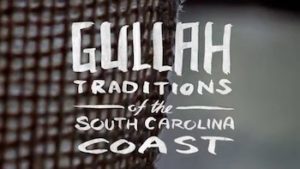
This date celebrates the Gullah community's language, mainly spoken along the Southeastern coast of the United States, especially on the Sea Islands off the coast of South Carolina.
The word is also used for people who speak the language. Many descendants of people who were brought from West Africa to the West Indies and America as slaves speak Gullah today. The language merges elements from several West African languages with elements from English. Gullah has survived largely because of the geographic isolation of many of its speakers, although the number of people who speak Gullah is declining due to increased contact with other communities.
During the late 17th century Antebellum South, West Africans who worked as slaves on sugar plantations in the West Indies developed pidgins. Pidgin is a simplified language that serves as a means of communication among people with no common language, such as the plantation owners and their slaves.
Other mixed Creole languages, spoken in Jamaica, Louisiana, Barbados, and other islands, influenced the pidgins used in the West Indies. Beginning in the early 18th century, many slaves were brought from the West Indies to plantations in the American colonies, where the English dialects of Scottish and Irish settlers further influenced their language. From these various influences, Gullah developed.
Linguists consider Gullah a Creole, a pidgin that has become the native language of a group. Like other Creoles, Gullah has a grammatical consistency and uniform structure, although regional variations exist. Gullah attained Creole status during the mid-18th century when the children of people brought from Africa as slaves learned Gullah as their first language.
Gullah’s vocabulary derives primarily from English, while much of the underlying grammar has a West African foundation. However, some African-derived words in Gullah have entered English, including goober, meaning "peanut" in the Kimbundu language; tote, meaning "carry" in Kikongo; and hoodoo, meaning "bad luck" in Hausa.
Like many West African languages, Gullah relies on short, loosely connected sentences that lack many prepositions, conjunctions, adjectives, participles, and adverbs that tie sentences together in English. Gullah speakers express different meanings by varying tone and pitch and using nonverbal gestures such as body language. Listeners infer relationships between sentences from individual usage and context.
Gullah is spoken with a rolling rhythm and closely resembles the sounds of Krio, a Creole spoken in Sierra Leone. It incorporates many complex idiomatic expressions whose meanings may not be readily apparent from their components. For example, the expression "`E onrabble ‘e mout’ tummuch" literally means, "he unraveled his mouth too much," or "he was too talkative." Although African American Black Vernacular English (AAVE) also has some features of West African languages, it and Gullah differ in speech patterns and vocabulary. Moreover, whereas Gullah is a Creole, AAVE is considered a dialect, a version of a standard language that differs from that language in pronunciation, grammar, or vocabulary.
In the 1970s, preservationists began to record Gullah in response to a rapid decline in Gullah speakers. In the 1980s and 1990s, interest in Gullah grew, leading to Gullah translations of traditional American stories and parts of the Bible, bilingual cookbooks, and the production of a television program based on the lives of inhabitants of a fictional Sea Island.
The Encyclopedia of African American Heritage
by Susan Altman
Copyright 1997, Facts on File, Inc. New York
ISBN 0-8160-3289-0